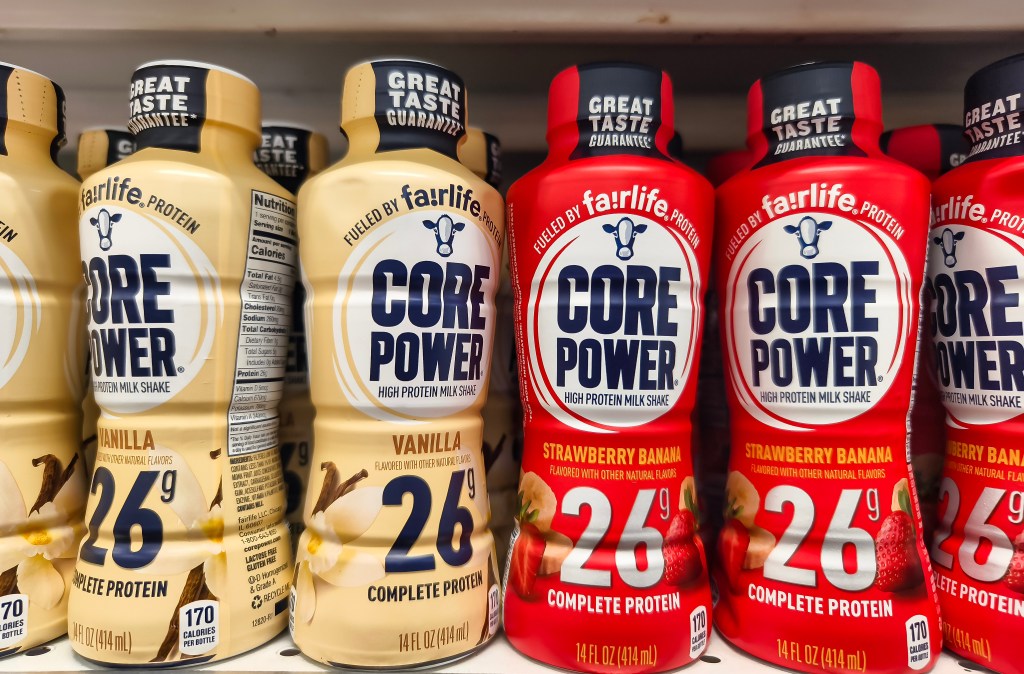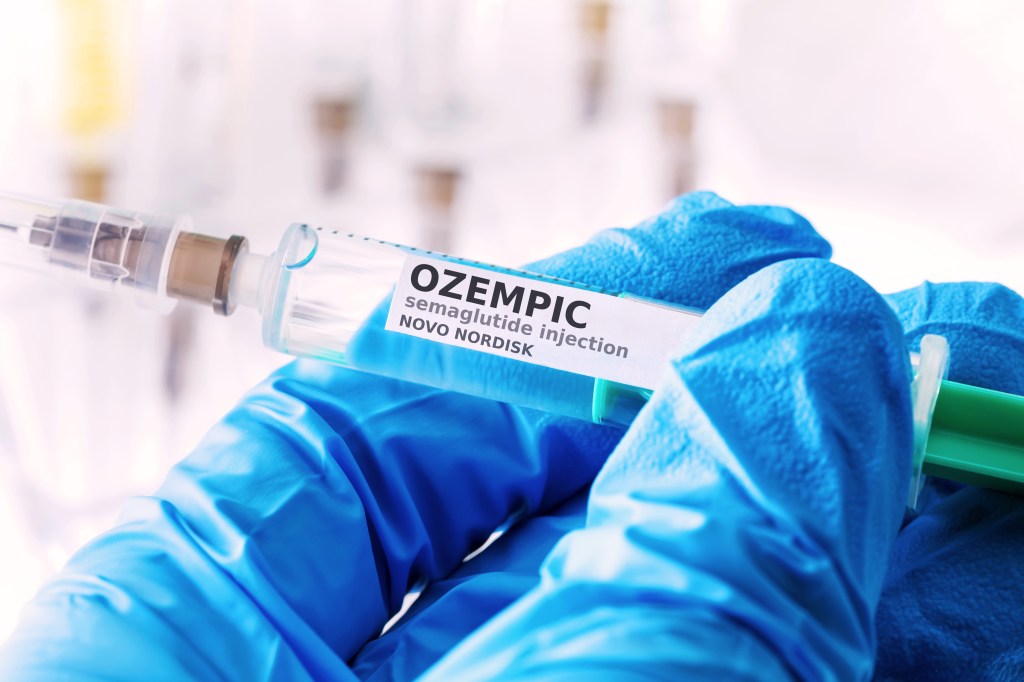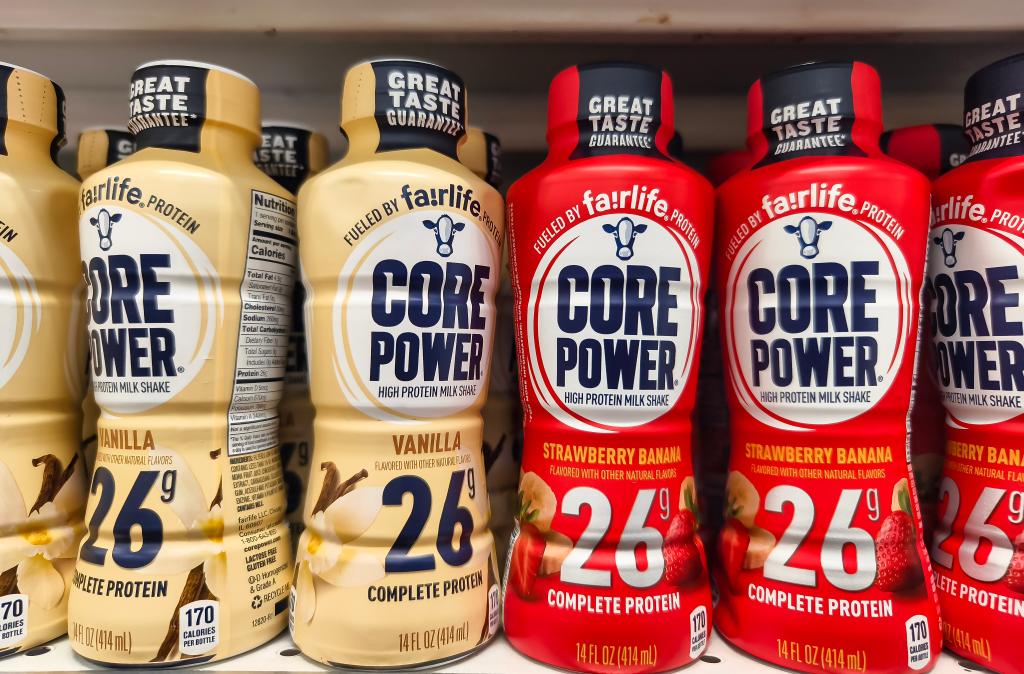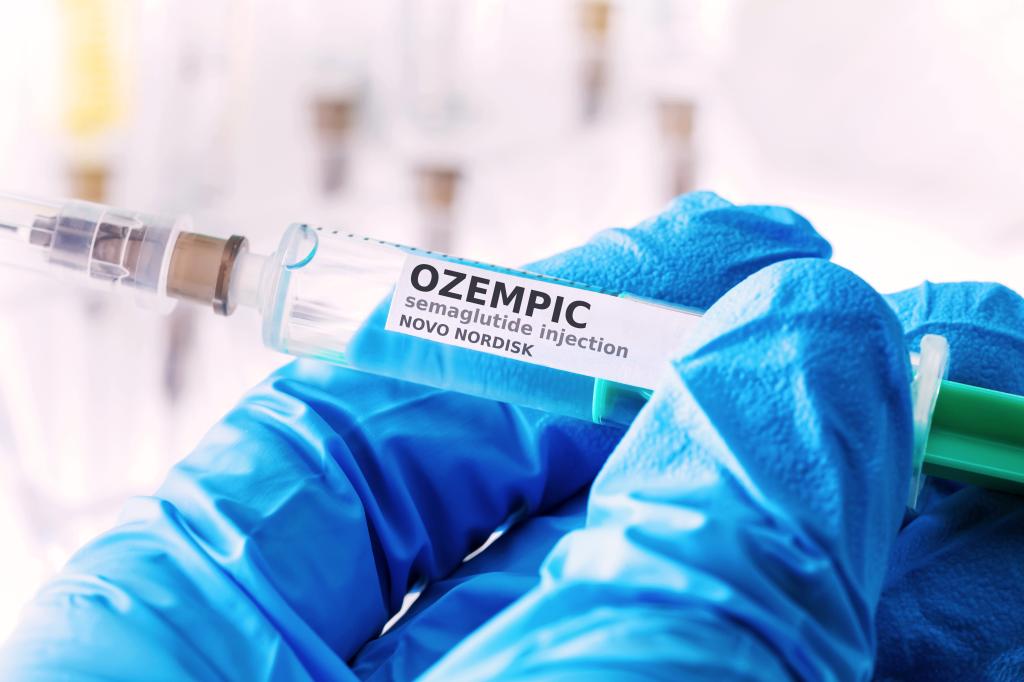Ozempic users are hooked on this popular drink — which was just ranked the unhealthiest bottled beverage in the US right now
They’re pumping protein — and guzzling sugar bombs.
Fairlife’s Core Power protein shakes — beloved by fitness fanatics and Ozempic users alike — have just been crowned the unhealthiest bottled beverage in America, despite their muscle-boosting reputation, according to
Shakes like these are a “great way to start the day without having to sit down and have a full breakfast,” gushed Elise Ramer, a 42-year-old PR pro in Florida, previously reported on by The Post.
Ramer said she puts Core Power in her coffee while taking the weight-loss drug Mounjaro — since users need to focus on their protein intake due to the possible muscle loss side effect.
But nutrition experts are throwing a red flag on the play.
“I put these first [as the unhealthiest bottled drink in the U.S.] because they are so highly marketed as a great source of protein and a healthy food when in reality they are a disaster to your metabolic health,” registered dietitian Mary Sabat recently told Eat This, Not That!
“Core Power protein shakes may seem like a convenient post-workout drink, but a closer look at the ingredients reveals several health concerns,” she noted.
The shakes are made by Fairlife, owned by Coca-Cola, and boast up to 42 grams of protein per bottle — but that muscle comes with a side of controversy. According to Sabat, it’s not just about sugar.
“They use non-organic, conventional dairy, which often comes from cows fed GMO corn and soy and may contain residues of hormones and antibiotics — unlike grass-fed dairy, which is higher in omega-3s and CLA and free from harmful residues,” she told the outlet.
“The addition of carrageenan, a thickening agent linked to gut inflammation and irritation, further detracts from its health profile,” she said.
Sabat also slammed the inclusion of artificial sweeteners like sucralose and acesulfame potassium, warning they’ve been “associated with gut microbiome disruption and potential carcinogenic effects in animal studies.”
She added, “Lastly, the label includes ‘natural flavors,’ a term that can encompass up to 100 different undisclosed chemical additives, many of which are far from natural. Together, these ingredients make Core Power far less healthy than its marketing implies.”
That hasn’t stopped the protein craze. Thanks to the Ozempic effect, these shakes are flying off shelves faster than a gym bro’s tank top.
Sales of protein and meal-replacement drinks surged 11.1% to a whopping $4.7 billion last year — and it’s the Ozempic army leading the charge, retail tracker SPINS revealed.
As The Post previously reported, Rila Global Consulting found that 13% of those on GLP-1 drugs like Ozempic and Mounjaro had consumed protein shakes in the past two years.
But some experts warn that overloading on protein — especially the highly processed kind — can backfire.
Dr. Joseph Antoun, CEO of longevity company L-Nutra, previously told The Post that too much animal protein can raise IGF-1 levels, a hormone linked to accelerated aging, cancer and diabetes.
“The goal isn’t to just build muscle — it’s to live long enough to use it,” he said.
In the meantime, maybe stick to a protein-packed egg — and leave the mystery “natural flavors” to the lab rats.















